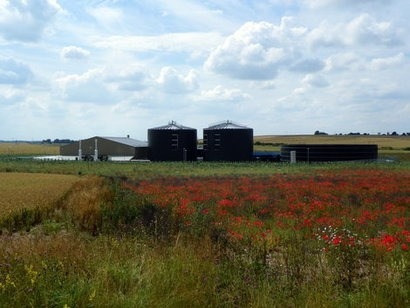
The article, written by journalist David Rose and published on 1st January, claimed that AD plants increasingly rely on special feedstock because they can’t source enough food and farm waste and that the industry receives £216 million per year in taxpayer-funded subsidies. The article, titled ‘The Great Green Guzzler Con’ went on to claim that a number of AD sites across the country have caused pollution from spillages and generate ‘pitiful levels of power’.
Ms Morton described Rose’s article as “misleading in its representation of anaerobic digestion (AD)” in that although AD plants are indeed eligible for payments through the Renewable Heat Incentive (RHI) they also provide exceptional value for money, both for the public purse and the environment. AD plants generate green gas and fertilisers, improve the UK’s energy security by reducing the country’s dependence on imported fossil-fuel supplies, recycle organic waste from sewage, inedible food waste and farm waste, and reduce UK greenhouse gas emissions. They also recycle nutrients, thereby helping to restore depleted soils and improve food security.
“The Anaerobic Digestion and Bioresources Association (ADBA) encourages all its members to operate plants to the highest possible standards, and is currently developing a Best Practice Scheme to help the industry maximise its environmental, health and safety, and operational performance” Ms Morton said. “Anaerobic digesters treat a range of different feedstocks depending on local conditions. Over half the energy produced by the industry is generated from sewage sludge, followed by liquid industrial effluents. ADBA is strongly pushing for separate food waste collections in England so that as a nation we reduce and recycle through AD far more of the food waste we generate, of which there is 10 million tonnes still going to landfill or incineration in the UK.”
Ms Morton added that energy crops are grown for AD by farmers as valuable break and cover crops in a rotation, but these represent less than 0.5 percent of the UK’s agricultural land – more land is used for golf courses than for growing crops for AD.
ADBA members grow crops for AD in accordance with the association’s best practice guidance, which sits alongside the Government’s sustainability criteria. Operators must meet these requirements in order to receive money through the RHI.
For additional information:

